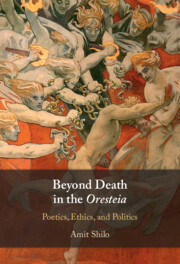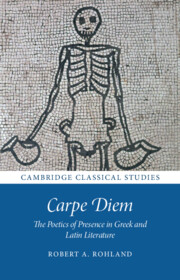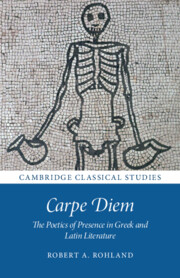Beyond Death in the Oresteia
The Oresteia is permeated with depictions of the afterlife, which have never been examined together. In this book Amit Shilo analyses their intertwined and conflicting implications. He argues for a 'poetics of multiplicity' and 'poetics of the beyond' that inform the ongoing debates over justice, fate, ethics, and politics in the trilogy. The book presents novel, textually-grounded readings of Cassandra's fate, Clytemnestra's ghost scene, mourning ritual, hero cult, and punishment by Hades. It offers a fresh perspective on the political thought of the trilogy by contrasting the ethical focus of the Erinyes and Hades with Athena's insistence on divine unity and warfare. Shedding new light on the trilogy as a whole, this book is crucial reading for students and scholars of classical literature and religion. This title is available as open access on Cambridge Core.
- Provides the first full-length study of the afterlife in this foundational literary work
- Gives fresh perspectives on the whole trilogy and its most famous characters
- Combines literary, ethical, political, and religious analyses to draw out the complexity of tragic thought
Reviews & endorsements
‘Shilo’s prose style is poetic in a way that feels deliberate, but never contrived. This makes the book a real pleasure to read, and only rarely misfires or obscures comprehension. All in all, I have no hesitation in recommending this book to students and scholars of tragedy, as well as those researching perceptions of death in the ancient world.’ Alexandra Hardwick, Bryn Mawr Classical Review
Product details
August 2022Adobe eBook Reader
9781108962216
0 pages
This ISBN is for an eBook version which is distributed on our behalf by a third party.
Table of Contents
- 1. The herald of the Agamemnon: Accounting the dead
- 2. The Chorus of the Agamemnon: Human views on the beyond. 3. Prophecy on the banks of the Acheron: Thinking Cassandra past her doom
- 4. Afterlives at the tomb of Agamemnon
- 5. Heroes in the Oresteia
- 6. The ghost of Clytemnestra
- 7. The tablet-writing mind of Hades: Omniscient ethical judgment.




